Historical Knowledge Normal Science Worksheets for Ages 7-8
5 filtered results
-
From - To
Explore our engaging Historical Knowledge Normal Science Worksheets tailored for ages 7-8! These worksheets cultivate young learners' understanding of historical science concepts, enhancing their curiosity and critical thinking skills. Designed with age-appropriate content, children will dive into important historical figures, groundbreaking discoveries, and significant scientific events. Each worksheet includes interactive activities that promote visual learning and retention. Perfect for classroom or home use, these resources support comprehensive learning while making history fun! Encourage your child to uncover the fascinating stories behind science's evolution and enjoy a stimulating educational experience today. Watch them become little historians and scientists in no time!
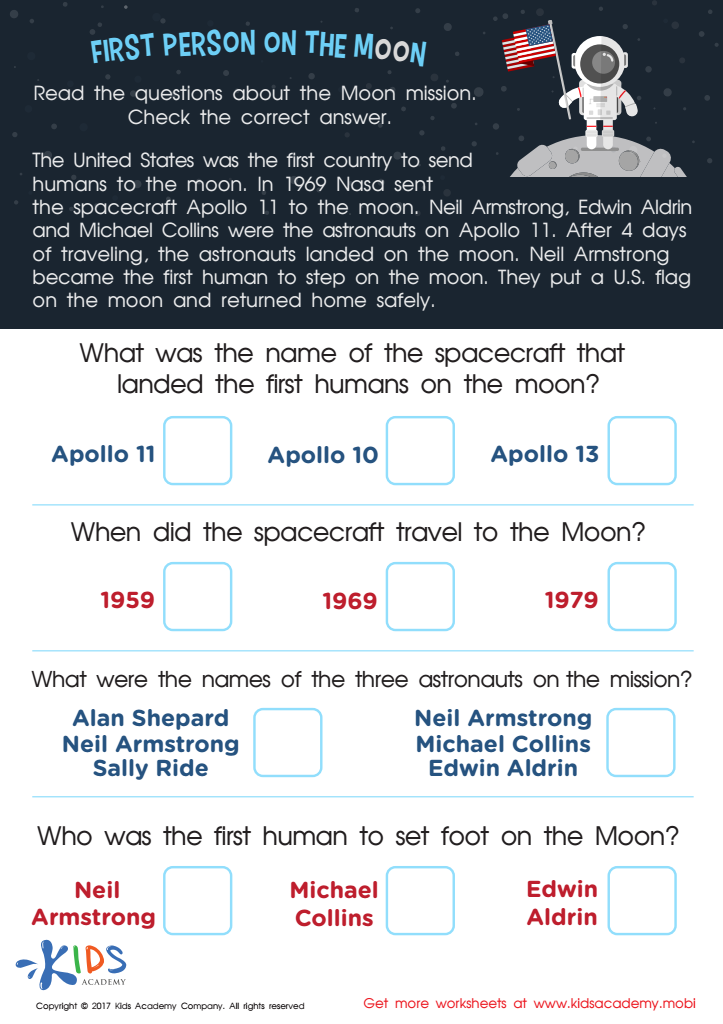

First Person on the Moon Worksheet
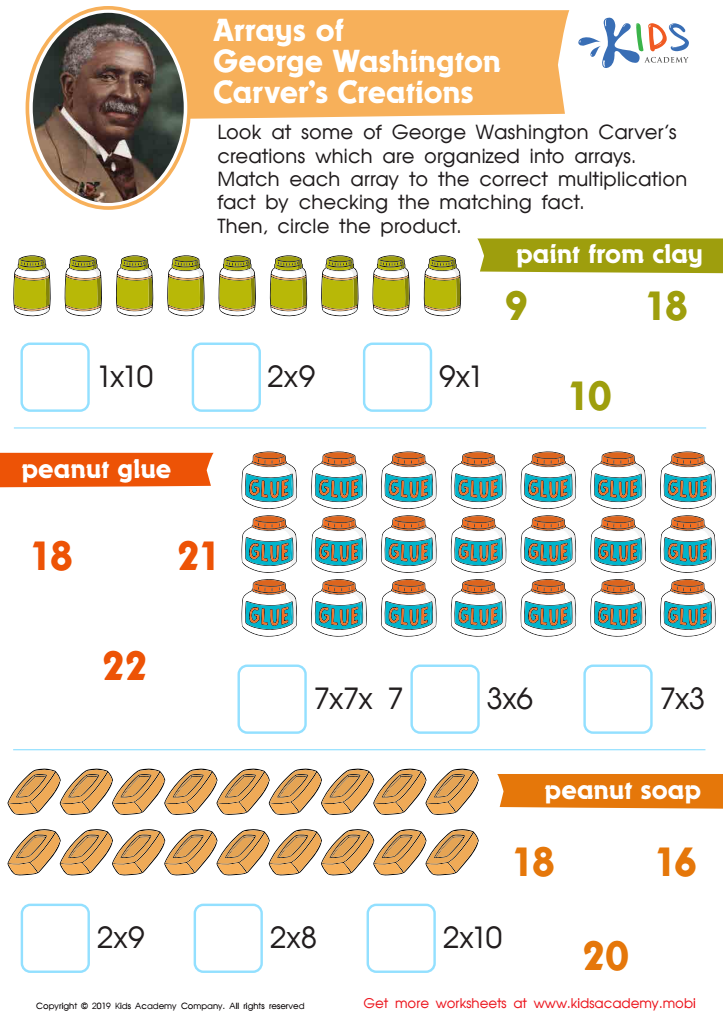

Arrays of George Washington Carver’s Creations Worksheet
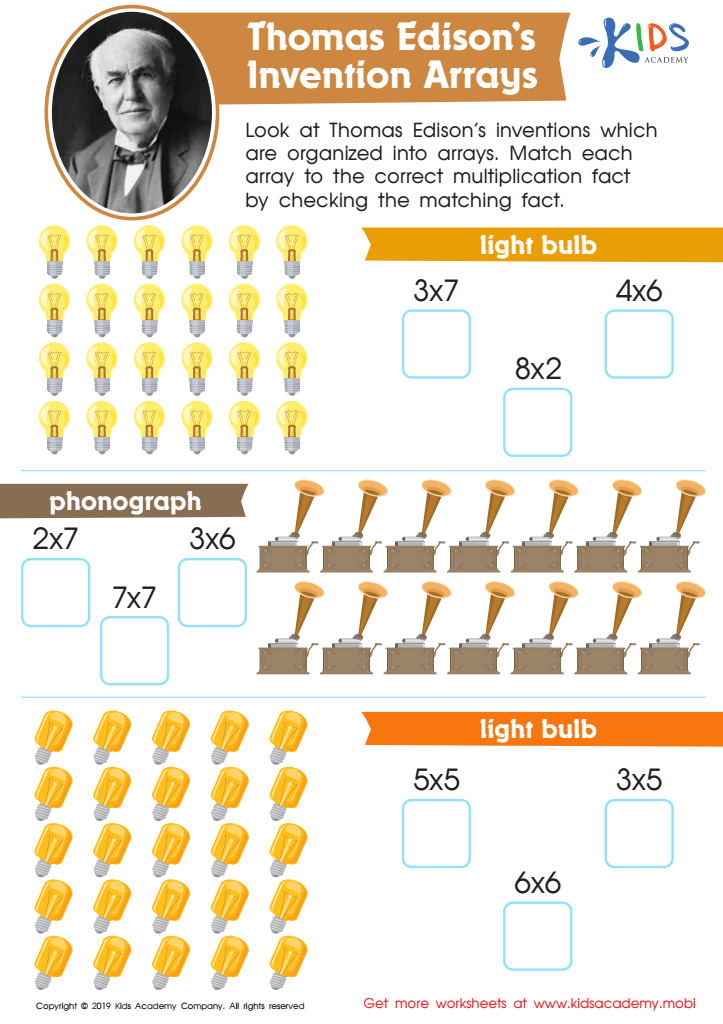

Thomas Edison’s Invention Arrays Worksheet
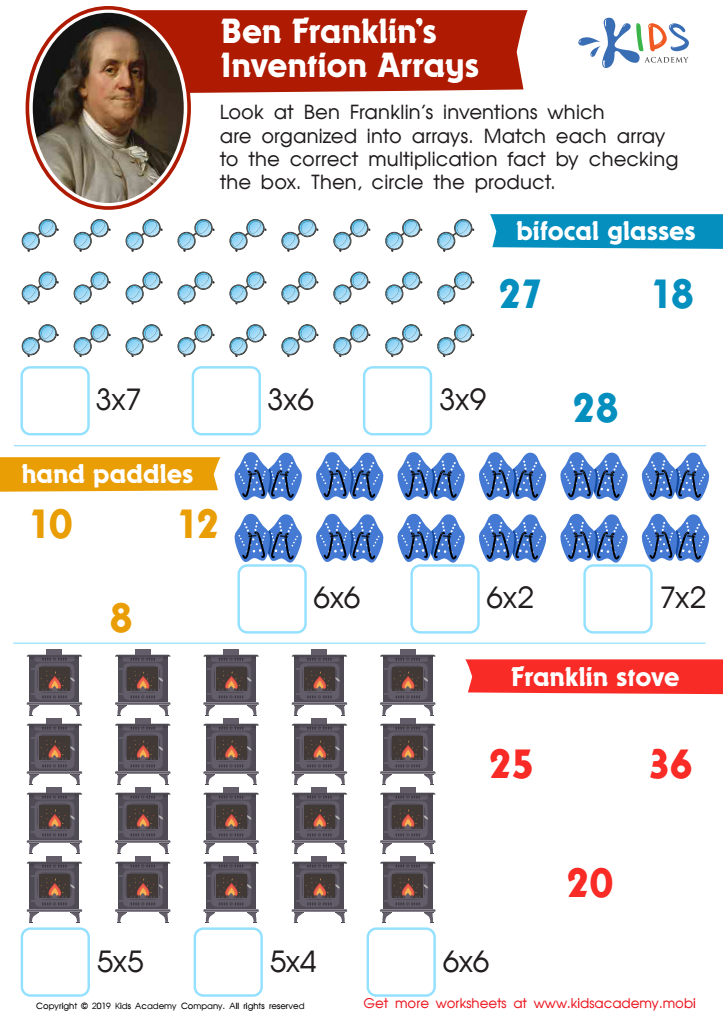

Ben Franklin’s Invention Arrays Worksheet
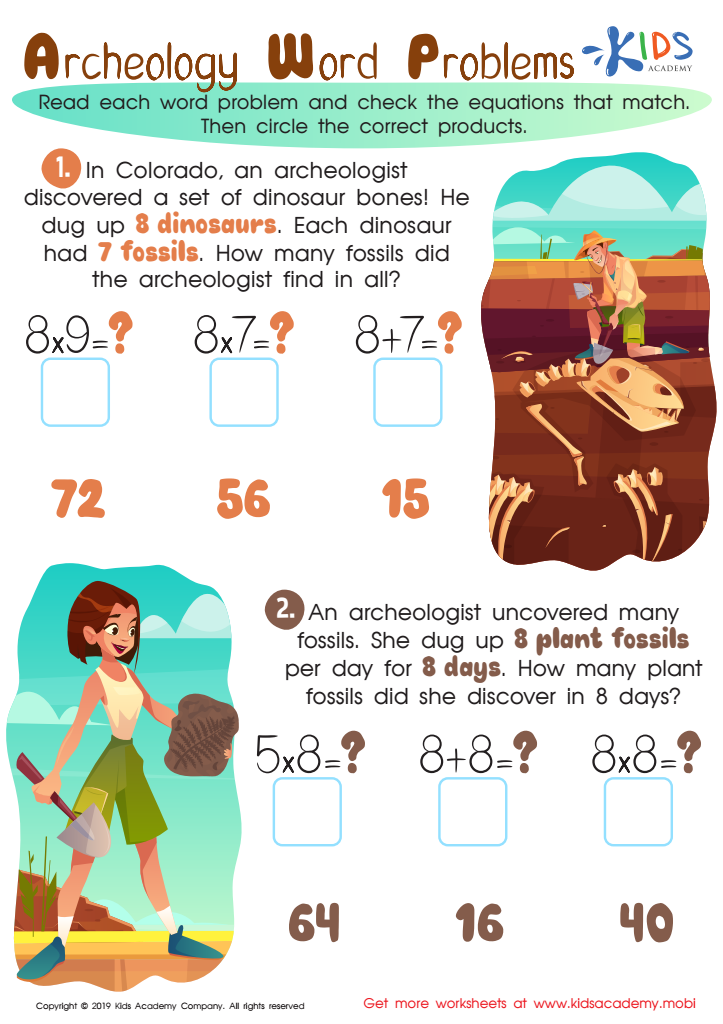

Archeology Word Problems Worksheet
Parents and teachers should prioritize Historical Knowledge Normal Science for children aged 7-8 as it lays a fundamental groundwork for scientific literacy and critical thinking. At this age, children are naturally curious and open to exploring the world around them. Introducing them to historical scientific concepts fosters an appreciation of how science has evolved, highlighting the contributions of diverse individuals and cultures. This not only empowers young learners by showing them that they can contribute to knowledge but also instills a sense of respect for different perspectives.
Understanding Historical Knowledge Normal Science equips children with the ability to discern facts, question information, and appreciate scientific methods. It teaches them about the trial and error that underpin discoveries, allowing them to grasp that science is not just a collection of static facts but a dynamic process full of challenges and possibilities. This approach also enhances their problem-solving skills, as historical examples can illustrate how scientists have tackled various issues.
Moreover, engendering a historical perspective on science can connect to broader themes, such as ethics, responsibility, and the impact of science on society, fostering well-rounded individuals who appreciate the role of science in their lives and the world around them.

 Assign to My Students
Assign to My Students





















